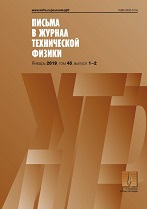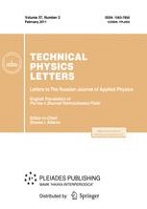|
This article is cited in 7 scientific papers (total in 7 papers)
Fluorocarbon carbonization of nanocrystalline silicon
E. V. Astrova, V. P. Ulin, A. V. Parfeneva, V. B. Voronkov
Ioffe Institute, St. Petersburg
Abstract:
A novel method to fabricate porous silicon–carbon nanocomposites has been suggested. The method uses carbon monofluoride reduction by silicon. The produced composite materials are formed by silicon nanoparticles confined into a carbon shell. The contacts of these particles provide current flowing across the formed carbon matrix. The dependences of density, porosity, and resistivity on the composition of Si–C composite pellets obtained by the suggested method have been determined. The studied materials are of interest for developing negative electrodes for lithium-ion batteries with high capacity.
Keywords:
silicon–carbon composites, silicon reduction of fluorocarbon, nanosilicon, porous silicon anodes for lithium-ion batteries.
Received: 02.04.2019
Revised: 05.04.2019
Accepted: 05.04.2019
Citation:
E. V. Astrova, V. P. Ulin, A. V. Parfeneva, V. B. Voronkov, “Fluorocarbon carbonization of nanocrystalline silicon”, Pisma v Zhurnal Tekhnicheskoi Fiziki, 45:13 (2019), 29–32; Tech. Phys. Lett., 45:7 (2019), 664–667
Linking options:
https://www.mathnet.ru/eng/pjtf5391 https://www.mathnet.ru/eng/pjtf/v45/i13/p29
|


|





 Contact us:
Contact us: Terms of Use
Terms of Use
 Registration to the website
Registration to the website Logotypes
Logotypes








 Citation in format
Citation in format 
